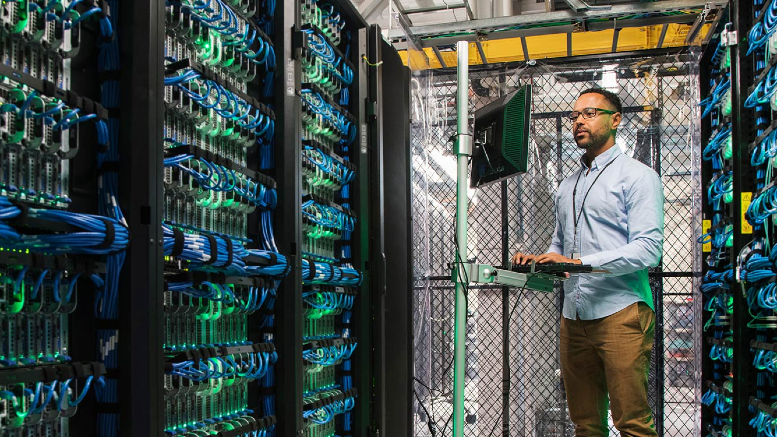How quantum computing is reshaping fraud detection and logistics
July 3, 2025 / Salvatore Sinno
Short on time? Read the key takeaways:
- Quantum machine learning outperforms classical methods and reduces training time, achieving zero false negatives in fraud detection while minimizing false positives.
- Optimization of air cargo loading planning through quantum computing could save 4,000 tons of fuel on long-haul flights.
- Hybrid quantum-classical systems offer the most practical near-term implementation path.
- Organizations building quantum readiness now position themselves for future competitive advantages.
Quantum computing has crossed the threshold from laboratory experimentation to practical problem-solving.
Recent collaborative research at the UK National Quantum Computing Centre showcased this progress through 19 government-funded research projects spanning healthcare, energy, logistics and finance. These initiatives reveal how quantum technologies are solving real-world challenges across industries, with measurable results that point toward broader quantum adoption.
Unisys contributes to this quantum advancement, showing how organizations can harness quantum technologies to address complex operational challenges*.
What is quantum computing's current state?
Today's quantum systems operate in the Noisy Intermediate-Scale Quantum (NISQ) era. These devices solve specific problems that challenge classical computers, particularly complex optimization or pattern recognition tasks. While fault-tolerant quantum computers remain years away, current systems deliver value for targeted applications.
Two compelling examples showcase how quantum applications address industry challenges while building toward broader adoption.
1. Quantum fraud detection: From proof of concept to practical value
One quantum fraud detection project demonstrates quantum machine learning's potential for financial security. This proof-of-concept work, now advancing to proof-of-value with industry partners, shows quantum computing's fraud detection capabilities.
Financial institutions battle sophisticated fraud schemes daily. Traditional detection systems struggle with a fundamental challenge: fraudulent transactions represent only a small fraction of total activity yet missing even one can have significant consequences.
Quantum restricted Boltzmann machines show promise
Research explored quantum-restricted Boltzmann machines (QRBMs) for credit card fraud detection. Using a European cardholder transaction dataset, the quantum approach matched established classical methods while achieving zero false negatives and minimal false positives.
Quantum energy-based modeling excels at separating complex data patterns that traditional algorithms miss. The approach leveraged quantum systems' ability to explore vast solution spaces simultaneously, identifying subtle anomalies indicating fraudulent behavior.
Current limitations and future potential
Present quantum hardware constrains fraud detection system scalability. However, research establishes foundations for hybrid approaches combining quantum pattern recognition with classical data management and real-time processing.
As quantum hardware improves, hybrid systems could dramatically enhance fraud detection accuracy while reducing false positives that frustrate customers and increase costs.
2. Quantum aviation cargo loading optimization: A flagship logistics study
A quantum feasibility study in air cargo logistics explores how quantum optimization addresses aircraft container loading challenges while delivering environmental and operational benefits.
Aviation has several optimization challenges where quantum computing shows clear advantages. Aircraft container loading exemplifies this complexity — airlines must maximize cargo capacity while meeting weight distribution, safety regulations and fuel efficiency requirements.
Airlines face significant pressure to optimize cargo loading. Manual planning with spreadsheets often produces suboptimal configurations due to time constraints and variable complexity.
Proper load planning affects multiple factors: weight and balance for safety, space utilization for revenue, fuel efficiency for costs, and regulatory compliance.
Quantum approaches to dual optimization problems
Research divided aircraft loading into two interconnected challenges: selecting which unit load devices (ULDs) to include (a knapsack problem) and arranging containers for optimal center of gravity positioning.
Quantum annealing methods showed strength for highly constrained, small- to medium-sized problems, achieving competitive or faster solutions than traditional methods.
Research revealed that quantum algorithms could determine optimal cargo arrangements while maintaining flight safety. Most significantly, optimizing aircraft center of gravity could yield substantial fuel savings — potentially 4,000 tons over a 10,000-mile journey.
Environmental and operational impact
These fuel savings translate directly into reduced carbon emissions, supporting aviation sustainability goals and broader environmental objectives.
Beyond environmental benefits, improved cargo optimization enhances supply chain resilience and operational efficiency, critical factors for an industry recovering from global disruptions.
Building quantum readiness in your organization
Organizations exploring quantum applications should start with well-defined problems where classical methods face limitations. Success requires collaboration between domain experts, understanding business challenges, and quantum researchers translating problems into suitable formulations.
Identifying suitable quantum use cases
The most promising quantum applications involve:
- Complex optimization with multiple constraints
- Pattern recognition in high-dimensional data
- Scenarios requiring exploration of vast solution spaces
- Problems where approximate solutions provide significant value
Developing quantum expertise
Building quantum readiness involves more than technology adoption. Organizations need internal expertise through research partnerships, pilot projects and strategic skills development.
Effective approaches combine realistic expectations about current quantum capabilities with strategic planning for future improvements. This allows organizations to build quantum knowledge while identifying use cases that benefit as technology matures.
What comes next for quantum computing?
These projects demonstrate quantum computing's evolution from academic curiosity to a practical problem-solving tool. While we're in the early adoption stages, foundations are being established for sophisticated applications across industries.
Current quantum systems excel at specific computational tasks rather than general-purpose computing. This specialization makes hybrid quantum-classical approaches the most practical near-term strategy.
Organizations investing in quantum readiness now, through research partnerships, pilot projects, and skills development, position themselves to capitalize on quantum advantages as they emerge.
The technology won't replace classical systems but will augment them in solving complex challenges. Success belongs to organizations that thoughtfully integrate these capabilities into operations.
As quantum hardware improves and hybrid systems become sophisticated, quantum computing will become essential enterprise technology infrastructure. The question isn't whether quantum computing will transform industries, but how quickly organizations can adapt to harness its potential.
Ready to explore how quantum computing could transform your organization's operations? Contact our quantum computing experts and learn more:
* This article draws insights from the SparQ Quantum Applications Portfolio 2023–25: Quantum Computing Use Case Compendium, published by the National Quantum Computing Centre in June 2025.





















